
Patients with HR+/HER2- early breast cancer treated with the CDK4/6 inhibitor plus endocrine therapy in the phase 3 NATALEE trial had a reduced risk for the cancer to recur.

Darlene Dobkowski, Managing Editor for CURE® magazine, has been with the team since October 2020 and has covered health care in other specialties before joining MJH Life Sciences. She graduated from Emerson College with a Master’s degree in print and multimedia journalism. In her free time, she enjoys buying stuff she doesn’t need from flea markets, taking her dog everywhere and scoffing at decaf.

Patients with HR+/HER2- early breast cancer treated with the CDK4/6 inhibitor plus endocrine therapy in the phase 3 NATALEE trial had a reduced risk for the cancer to recur.

Watch Dr. Ana C. Sandoval Leon, from Miami Cancer Institute, Baptist Health South Florida, discuss HER2-positive metastatic disease during the CURE Educated Patient® Breast Cancer Summit at MBCC.

Watch Dr. Naomi Dempsey, from Miami Cancer Institute, discuss the management of HER2-positive, early-stage disease during the CURE Educated Patient® Breast Cancer Summit at MBCC.
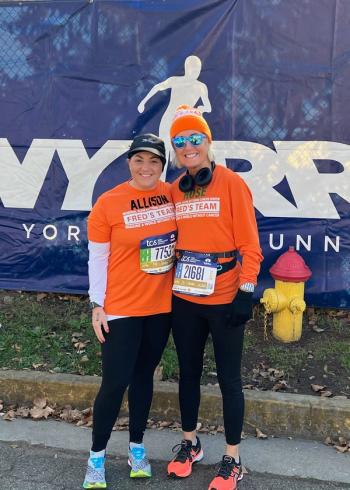
A marathon runner who was diagnosed with metastatic melanoma learned that what she enjoyed doing before cancer could help her regain her energy and identity during and after treatment.

Gay and bisexual men with prostate cancer may have different needs that need to be addressed with health care providers as they go through treatment and beyond.

This FDA approval of Zynyz was based on findings from a study which demonstrated that the therapy improves responses in patients with locally advanced Merkel cell carcinoma.

Art therapy allows patients to figure out how to use art to access emotions and experiences and to externalize them, one expert said.

Serious athletes may benefit from the training they did before diagnosis, but that doesn't mean it's too later for anyone to start movement during their cancer journey.

The phase 2 DESTINY-PanTumor02 trial included patients with HER2-expressing solid tumors such as bladder, pancreatic and rare tumors.

A cervical cancer survivor tells her story of how a MLM company urged her to use her diagnosis to sell more products.

With 74% of testicular cancer survivors reporting hearing loss in a recent study, one expert advised patients to advocate for themselves and their hearing before, during and after cancer treatment with cisplatin-based chemotherapy.

This updated administration of Udenyca allows patients to receive this treatment in the office or at home.

Removing the Ki-67 score to determine eligibility for Verzenio treatment in patients with HR-positive, HER2-negative, node positive, early breast cancer allows for more patients to receive this treatment.
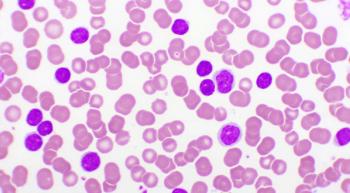
The novel targeted radiotherapy iomab-B led to the disappearance of all signs of cancer and an improvement in event-free survival compared with physician’s choice of treatment.

Patients with type 2 diabetes have an increased cancer burden and, as a result, a higher mortality rate, highlighting the importance of inflammatory factors like obesity and glucose control.

Researchers identified several biomarkers that may indicate how a patient responds to Padcev, a type of antibody drug conjugate for patients with urothelial carcinoma, a type of bladder cancer.

Cancer treatments including chemotherapy and radiation may increase a patient’s risk for heart disease, and being mindful of some of the symptoms may be one of the steps for prevention, one expert said.

The PRESERVE 1 trial was discontinued due to responses and survival measures favoring placebo versus Cosela when added to a chemoimmunotherapy regimen.

The impact of living in a socioeconomically disadvantaged area and having conditions like diabetes or high blood pressure may increase the likelihood of a childhood cancer survivor dying at least five years after they were diagnosed.
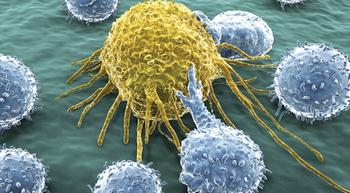
Researchers conducting a phase 2 trial recently dosed the first patients with a novel menin inhibitor for the treatment of patients with NPM1-mutant relapsed or refractory acute myeloid leukemia.

The FDA approval of Trodelvy for patients with HR-positive, HER2-negative metastatic breast cancer provides patients with another treatment option after hormone therapy and standard chemotherapy.

Guidelines often use a cutoff of 70 years old for breast cancer treatment, but patients should discuss goals of care with their team to further personalize their care.

The Food and Drug Administration approved Trodelvy for patients with pretreated, unresectable HR-positive, HER2-negative metastatic breast cancer.

Since 2015, the use of immunotherapies has increased for both young and older patients, but the survival benefit is more evident in younger patients, findings demonstrated.

In this episode of the “Cancer Horizons” podcast, “Rabbi G” discusses his global travels to teach breathwork to children with cancer, and gives an exercise listeners can use to decrease their pain and anxiety.
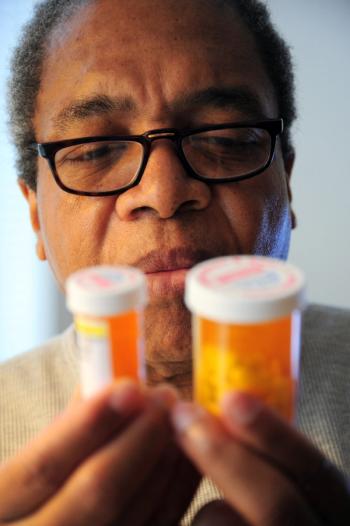
Older patients with advanced cancer who were taking eight or more medications before starting treatment were more likely to discontinue treatment and/or experience a side effect from drug interactions.

The TRANSCNED CLL 004 trial met its primary endpoint of complete responses with the CAR-T cell therapy Breyanzi in patients with relapsed or refractory CLL or SLL.
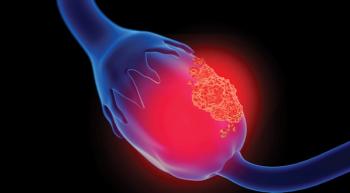
Women with low-grade serous ovarian cancer treated with avutometinib and defactinib experienced positive response rates compared with avutometinib alone.

An expert from the FDA explained the benefits and limitations of these two clinical trial formats and how the cancer field can learn from both.

A data monitoring committee recommended to stop the phase 3 trial in metastatic hormone-sensitive prostate cancer due to a lack of progression-free survival and overall survival with combination therapy.